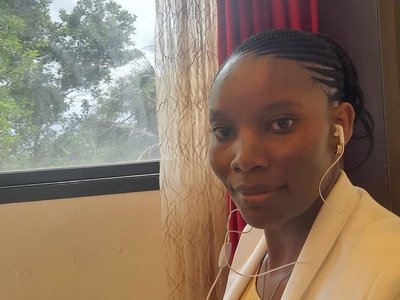

Energy is required by Water Services Providers (WSPs) for abstraction, treatment, and distribution of drinking water. Energy costs could range between 30-50% of running costs of WSPs. Currently, most WSPs in Africa have reported consistently poor operational efficiency and aging infrastructure which contributes to huge water losses and associated energy input. Water losses and associated energy input contributes to poor operational performance of WSPs and delays expansion of access to water services and achievement of universal access to safe drinking water by 2030 (SDG 6). At the same time, long-term water provision is highly influenced by water demand and supply drivers, e.g., population growth, urbanization, climate change and technological change. For instance, accelerated population growth is projected for Africa, the region with the highest global urban growth rate, where about 60% of the total population is expected to be urban by 2050. This implies huge growth in water demand that calls for investment in technology, infrastructure, and improved understanding of energy use for water supply. Consequently, for WSPs to meet the current and future water demand, new and strategic investment in improving the daily operations of water supply systems is needed to improve on service delivery.
The main objective my PhD study was to explore the Water-Energy-Nexus approach as a high-potential tool for assessing energy input for water supply in Africa. Furthermore, it aimed to explore the major water supply and demand drivers and their influence on energy input for water supply in Africa. The study observed that energy use for water supply has not received much attention from Water Services Providers (WSPs) at the national and even regional level in Africa. Hence, energy input is not considered a key performance indicator for water services providers. Consequently, there is no requirement for WSPs to monitor and evaluate energy input for their operations. This is despite that energy costs being the most controllable for WSPs which have a short payback period upon investment in highly efficient devices like pumps and motors. The present study demonstrated the need to assess energy for water supply by application of metrics that can be incorporated within the current performance assessment of WSPs. This would be useful in benchmarking and peer learning among the WSPs. Additionally, this study aimed to draw the attention of the stakeholders (WSPs, water regulator, water planners) to consider energy use in the planning of future water supply through outcomes of energy demand under different scenarios of WSP operations and water demand to meet the expected increase in water demand which will require high-energy intensive exploration of new water sources. The scenario outcomes can be applied at country level to inform future energy planning and policies to respond to the increase in water demand and the planned expansion of water supply sources.
I am greatly indebted to the APPEAR Program for the scholarship to pursue my PhD studies in Austria. The successful completion of my PhD journey, as a student mother and three months after a safe delivery of my twin girls was such a great personal achievement which I hope will inspire other women and girls especially in Africa. It was an exciting but challenging period to divide my time and attention between my PhD studies and my young family who motivated me to keep working harder. Additionally, I did not only grow professionally, but my inter-personal and networking skills were greatly enhanced. I had the opportunity to learn and compare the water supply systems in Europe especially within the Danube Region and share some insights on operational improvements with water supply providers in Kenya. Furthermore, having an excellent relationship with my supervisors Prof. Norbert Kreuzinger who always stopped whatever he was doing whenever I popped into his office to attend to my questions and offer any help I needed and Prof. Nzula Kitaka, was my greatest asset. Lastly, the many places to unwind in Vienna whether in the parks, in the woods or in museums helped me to recharge especially during the COVID-19 pandemic and lockdowns.
Pauline Macharia holds an Msc in Environmental Sciences specializing in Limnology and Wetland Ecosystems from UNESCO-IHE, The Netherlands in conjunction with Austrian Academy of Sciences. She has a Bachelor of Science in Applied Aquatic Sciences from Egerton University, Kenya. She has been involved in research in aquatic ecosystems in Kenya both lake and river ecosystems especially in water quality and environmental flows. Prior to starting her PhD, which she finalised in November 2021, Pauline worked as an Assistant Lecturer at Egerton University, Kenya where she had been teaching water quality assessment and aquatic ecosystem management. Her research interests are in operational efficiency of drinking water supply systems, water treatment and water quality monitoring.
Publications:
Macharia, P. Kitaka, N., Kreuzinger, N. Applying the Water-Energy Nexus for Water Supply—A Diagnostic Review on Energy Use for Water Provision in Africa. Water 2020, 12, 2560. doi:10.3390/w12092560
Macharia, P.; Wirth, M.; Yillia P.; Kreuzinger, N. Examining the Aggregate Impact of Drivers on Energy Input for Municipal Water Supply in Africa. Sustainability 2021, 13, 8480. doi.org/10.3390/su13158480
Macharia, P., Kitaka, N., Yillia, P., Kreuzinger, N. Assessing Future Water Demand and Associated Energy Input with Plausible Scenarios for Water Service Providers (WSPs) in Sub-Saharan Africa Energies 2021, 14, 2169. doi.org/10.3390/en14082169
